4 Young Climate Activists on Intersectionality in Climate Justice, Fighting From Home, and More
In honor of Earth Day, we interviewed four young women fighting for climate justice.
Updated Aug. 18 2020, 2:26 p.m. ET
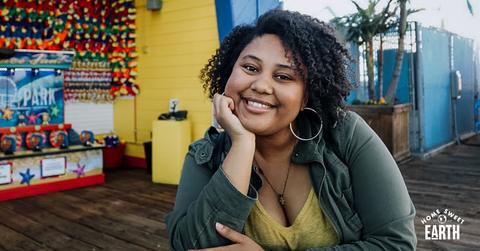
“If we don't work on climate justice, then we can't work on any kind of justice,” says Elsa Mengistu, 18. If an 18-year-old is able to understand the importance of intersectionality in the climate movement, why is it so difficult for older politicians to get it?
The answer to that question may be unclear. But it is clear why young people — particularly, young women and teenagers — have become the stars of the environmental movement.
As TIME’s 2019 Person of the Year, Greta Thunberg is arguably the global leader of the movement. But around the world, there are many other young women and teenagers from less privileged backgrounds who are working just as hard to protect the planet for future generations — and in honor of our Earth Day campaign, #HomeSweetEarth, we are profiling four of them.
These four young women may have less activism experience than some adults who have known about the climate emergency for decades — but they are certainly getting more done for the planet than some of their elders ever have. And these women are not only speaking up for the planet, but also for the people from the developing nations from where they come — countries that contribute to greenhouse gas emissions the least, but are affected by the climate crisis the most.
Read on for our profiles of four incredible young women who are working to make the climate movement more intersectional and amplify voices that deserve to be heard, as well as for their advice on how people can keep up climate activism during the COVID-19 pandemic.
Vanessa Nakate, 23
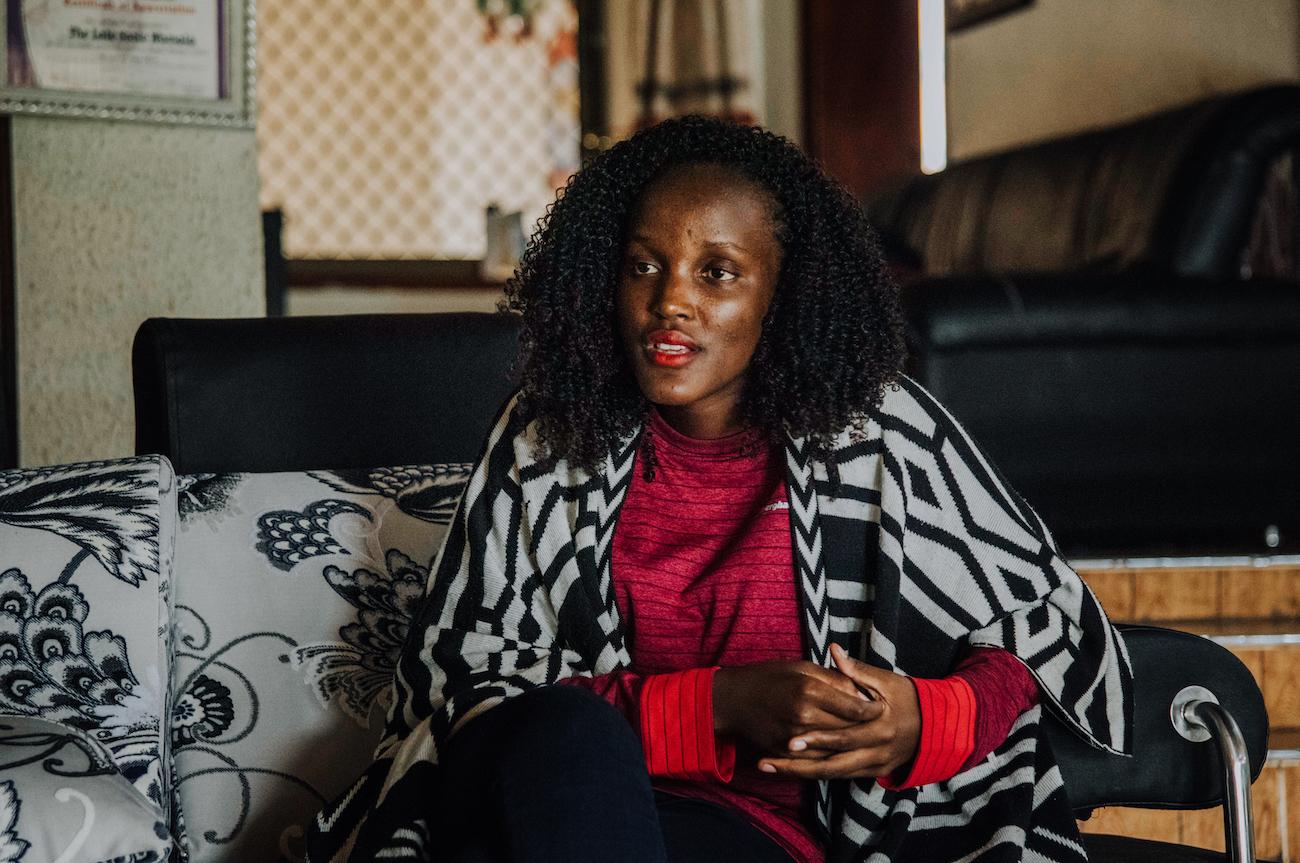
In January of this year, the AP was the subject of worldwide outrage after cropping Uganda-based climate activist Vanessa Nakate out of a photo with Greta Thunberg and several other climate activists, erasing Vanessa — the only voice of color — from the viral image. But Vanessa is much more than the unwitting subject of that epic fail. Since getting involved in the climate movement in December 2018, Vanessa has become a powerful voice not only for the environmental movement, but also a voice against racism within the space.
“I remember in 2018, I wanted to do something that could cause change in the lives of the people in my community,” Vanessa tells Green Matters. “I [set out to] understand the problems that are faced by these people. Honestly, I was so surprised to find climate change as one of those problems, because in school, it was taught as something that happened in the past, or something that’s coming in the far future, and that we don’t have to worry about it.”
She did more research, and soon learned that many of the factors causing people in her country of Uganda to become homeless and starve were related to the climate crisis. As she explains, in Uganda, particularly in the Mount Elgon area, many people depend on agriculture for their survival. Extreme weather events as part of the climate crisis, such as torrential rainfall, unpredictable rainfall, landslides, flooding, rising temperatures, and droughts, can destroy crops, farms, and homes, leaving people hungry and homeless. “So many people are left with nothing to eat … or to actually starve to death,” Vanessa says.
“When I found out that these people were actually looking at climate change in the face and suffering right now, I decided that I needed to do something about it, and I needed to start doing something that would help them, something that would stop all these disasters in their lives,” she recalls. “Climate activism became so personal and important to me because I’m a very emotional person and it touched me so much to see people suffer … I really want to change these people’s lives and do something to contribute to a better future for them.”
By July 2019, Vanessa had joined Greta Thunberg’s Fridays for Future movement, and she began striking in Uganda every Friday. But a few months later, she started her own movement to magnify African voices in the environmental space.
“I started the Rise Up Movement because I noticed that different voices in Africa were trying so much to get their message out there, to tell their stories, and yet it was almost impossible,” she explains. “So the main goal of the the Rise Up Movement is to try as much as possible to amplify the voices of different climate activists across Africa, and to try as much as possible to get them to be interviewed by media, to create opportunities for them on the world’s stage so they can influence decisions of world leaders.”
With the coronavirus pandemic going on, there are new challenges to spreading messages — but Vanessa has been more active than ever during quarantines. She’s been posting a photo as part of the #ClimateStrikeOnline every Friday; she’s been participating in Zoom meetings about the climate and sharing photos of those meetings to social media; she’s been doing video activism on TikTok; and she started both a podcast and a YouTube channel to interview climate activists “to get to know their stories and to amplify their voices in this period where it seems like no voice is being heard.”
While not everyone has the same audience as Vanessa (who has 100,000 Instagram followers and another 138,000 on Twitter), most of us have access to the same tools — Zoom, Twitter, and Instagram — and we can still use them to keep active until we can hit the streets and march again.
Elsa Mengistu, 18
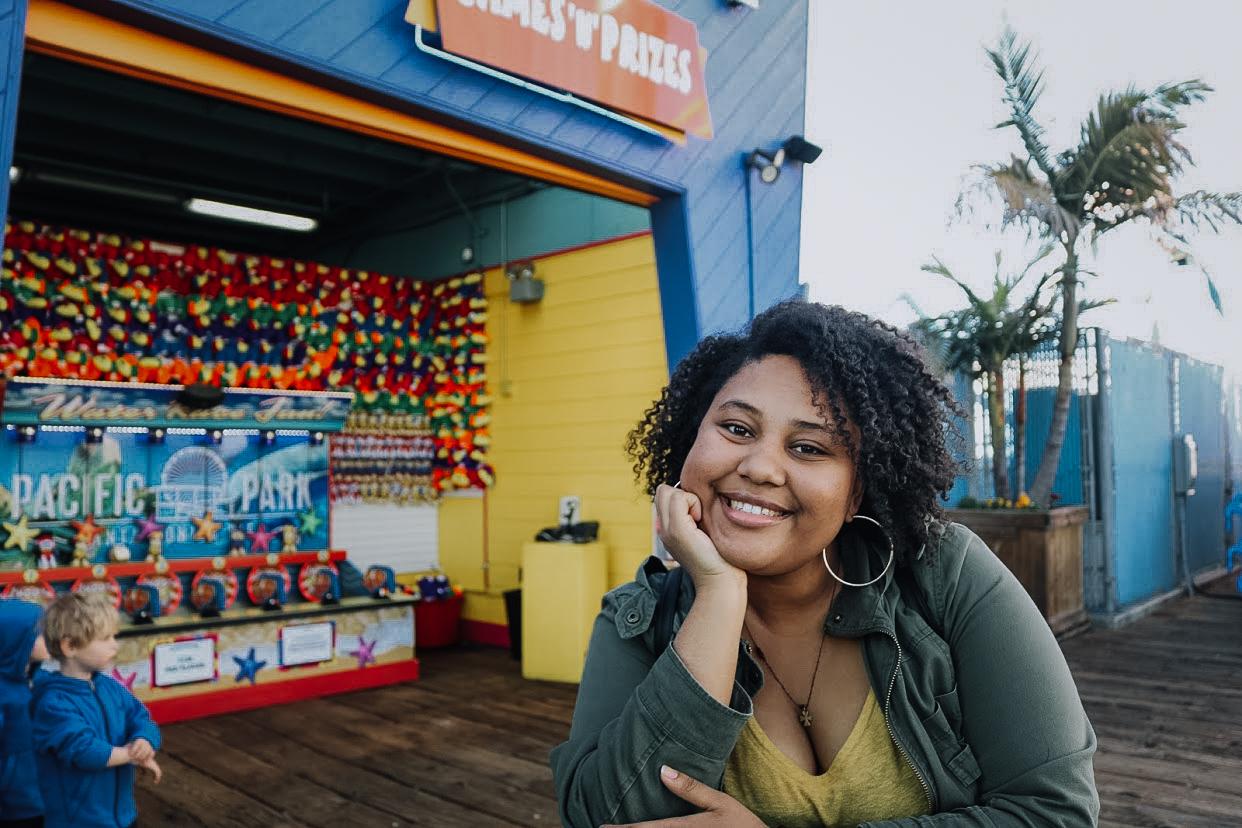
Elsa Mengistu, a freshman at Howard University, has been a climate activist with Zero Hour since 2017. She currently serves as the Zero Hour’s Operations Director, and with the organization, she helped organize both the D.C. climate strike and a climate summit in Miami; currently, she is on the steering committee for Power Shift 2021, a climate justice training conference scheduled for 100 days into the next presidential term.
At just 18, Elsa has already made a name for herself as a public speaker. In her speeches, she often discusses the intersectionality between climate justice and all other forms of social justice.
“I find that there is not a single issue on this Earth that does not interconnect in one way or another,” Elsa tells Green Matters. Immigrants, sex workers, women, LGBTQ+ youth, victims of gun violence, refugees, Black and Indigenous people, and any marginalized people are “people whose lives are unrooted and oppressed by the very same mindsets and systems that have led to climate change,” Elsa says. “The very same systems that are leading us to the brink of extinction are the same systems that create injustice everywhere.”
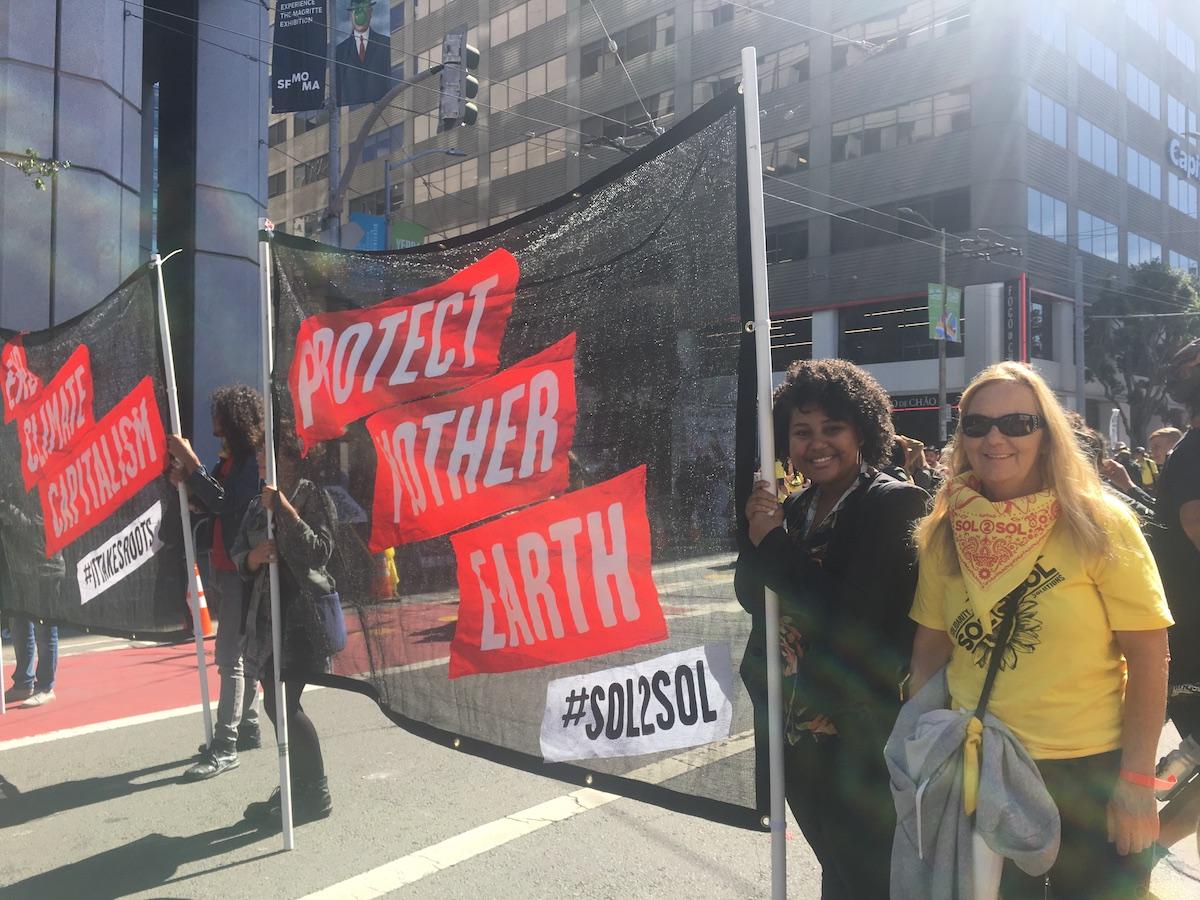
In February, Elsa was invited to speak in Congress about the removal of confederate statues and her experience growing up in the south. “I talked about how confederate statues on federal lands create an unfair barrier to Black Americans having access to green spaces, which is already limited,” she says.
“If we don't work on climate justice, then we can't work on any kind of justice,” Elsa adds. “Protecting the planet is also about protecting the people on it. Climate justice and organizing gives us the sense and tools to not only fight for Mother Earth but for the lives of everybody here as well. That's why we should care.”
Since going into quarantine for the coronavirus pandemic, Elsa’s climate activism routine actually hasn’t been too different from what she usually does, since most of it was already online — however, her focus has shifted to caring for those in need.
“During quarantine, my work has stayed more or less the same,” Elsa says. “But the goals and the way we do our work have had to change because of everything going on. But most importantly, I’ve been trying to focus on self care and community care which are also the core of this work. How can we sustain a movement if we cannot sustain ourselves or our communities?”
“So while everyone’s work may look different right now because of this crisis, we can shift part of our focus to the well being of not only ourselves but also our communities so we can continue to fight the climate crisis with resilience,” she continues. “Setting up networks and systems of support between your community and those around is the most powerful form of organizing and activism we have. It's one of our most useful tools, and it’s how we will win.”
Sofía Hernández, 21
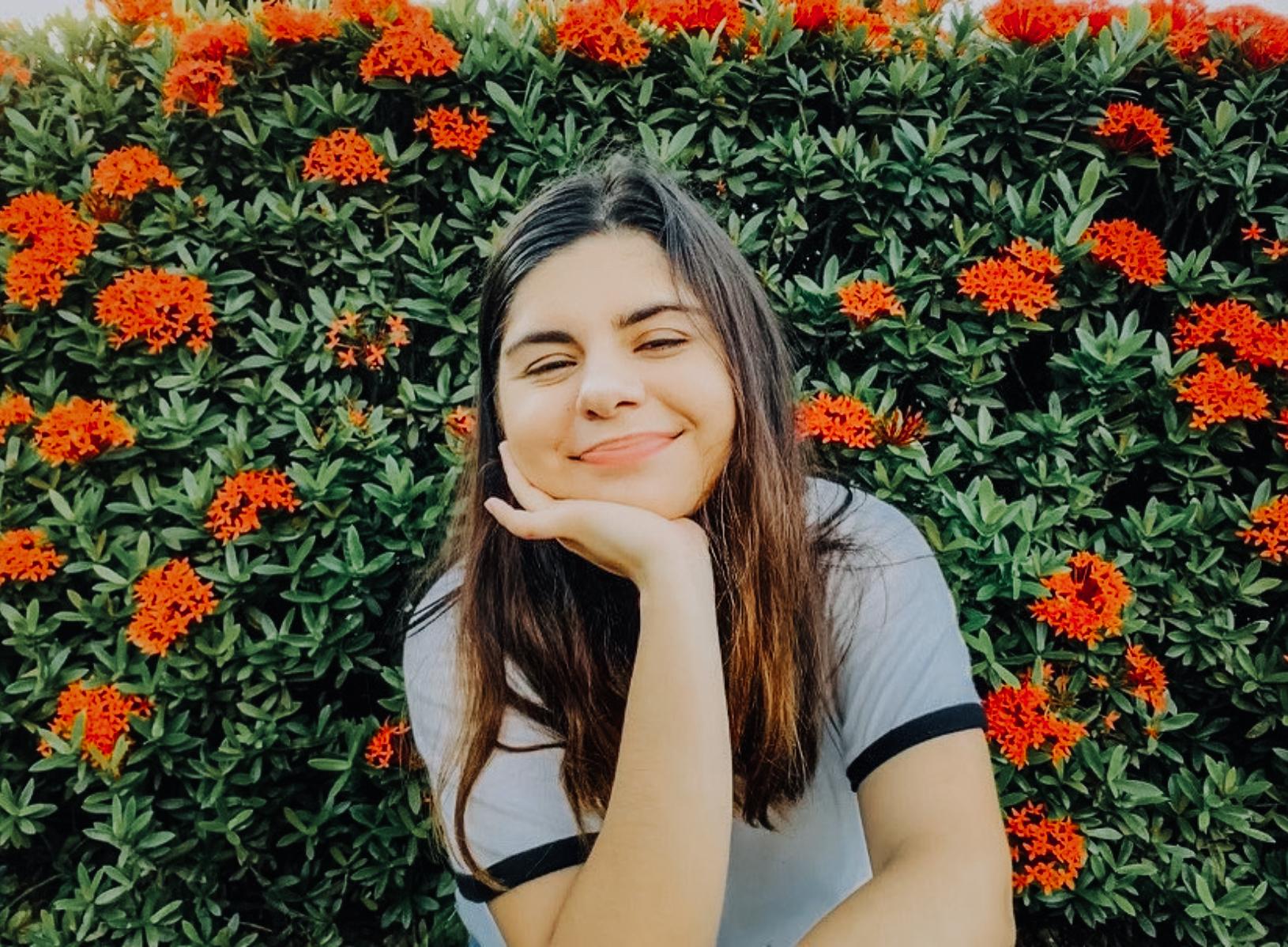
Growing up in Costa Rica with a labor lawyer father and a mother in the mental health field, Sofía Hernández says she learned “the importance of always advocating for the common good, for human rights, and respect” from a young age.
“I see activism as a process, not something that you woke up one day and now you’re an activist,” Sofía tells Green Matters. “It's a process and every single day you find something new to fight for.”
And Sofía has certainly found plenty of new things to fight for. Currently, Sofía is a fifth-year political science student at the University of Costa Rica, working on a thesis about the impacts of the climate crisis on food sovereignty. She is a member of her school’s environment commission and feminist collective; outisde of UCR, Sofía is an organizer for Fridays For Future Costa Rica, a coordinator for the Youth and Climate Change Costa Rican Network, and a collaborator with We The Planet. She also attended COP25 in December 2019 in Madrid as a young Delegate of Costa Rica.
The 21-year-old sees climate activism as so much more than what it is on the surface — to her, it’s the ultimate social justice issue. “I think that everyone should care about protecting the planet because we don't have anywhere else to go,” Sofía says. “We only have one home, and maybe we are the only species with the ability of talking and reasoning but we, also, have the most egocentric relationship with the planet and even with our equals. Protecting the planet is not only caring about all the ecosystems and species but also is caring about a more equal society and humanity.”
Costa Rica gets a lot of press for embracing renewable energy — but there are serious issues holding the country back from achieving true environmental justice.
“My country is well known for being a green country, [and] a leader in human rights … however, we still have a lot to fight for,” Sofía says. “We are one of the countries with the most ambitious decarbonization plans that meets the goal of the 1.5 degrees of the Paris Agreement, but like in any other Latin American country, being an Indigenous people and an activist means threat and even death, where human rights are being neglected to pursue the goal of renewable energy. And although being an environmentalist is part of our social and political culture, we, mostly, remain in the speeches of green leadership because our rivers, oceans and ecosystems usually say the opposite.”
To change this, Sofía thinks Costa Rica needs to focus on ramping up environmental education across the country, and urging local and national governments “to address an environmental policy action plan that corresponds to the ecosystemic and social needs that concern it, always aiming for human rights and a real sustainable development.”
In terms of keeping up climate activism while in quarantine, Sofía points to all the organizations hosting webinars, panels, and livestreams that anyone can attend, such as Fridays For Future, Polluters Out, and Zero Hour. Sofía encourages everyone to participate in the #ClimateStrikeOnline every Friday by posting a photo of yourself with a homemade sign to social media on Fridays. “We are still striking because COVID-19 is not the only crisis that we are facing,” she says. Sofía also encourages people to write essays about the climate; whether you do this for school, for social media, or in hopes of publication, writing can be a powerful tool for activism.
Keyra Juliana Espinoza, 17
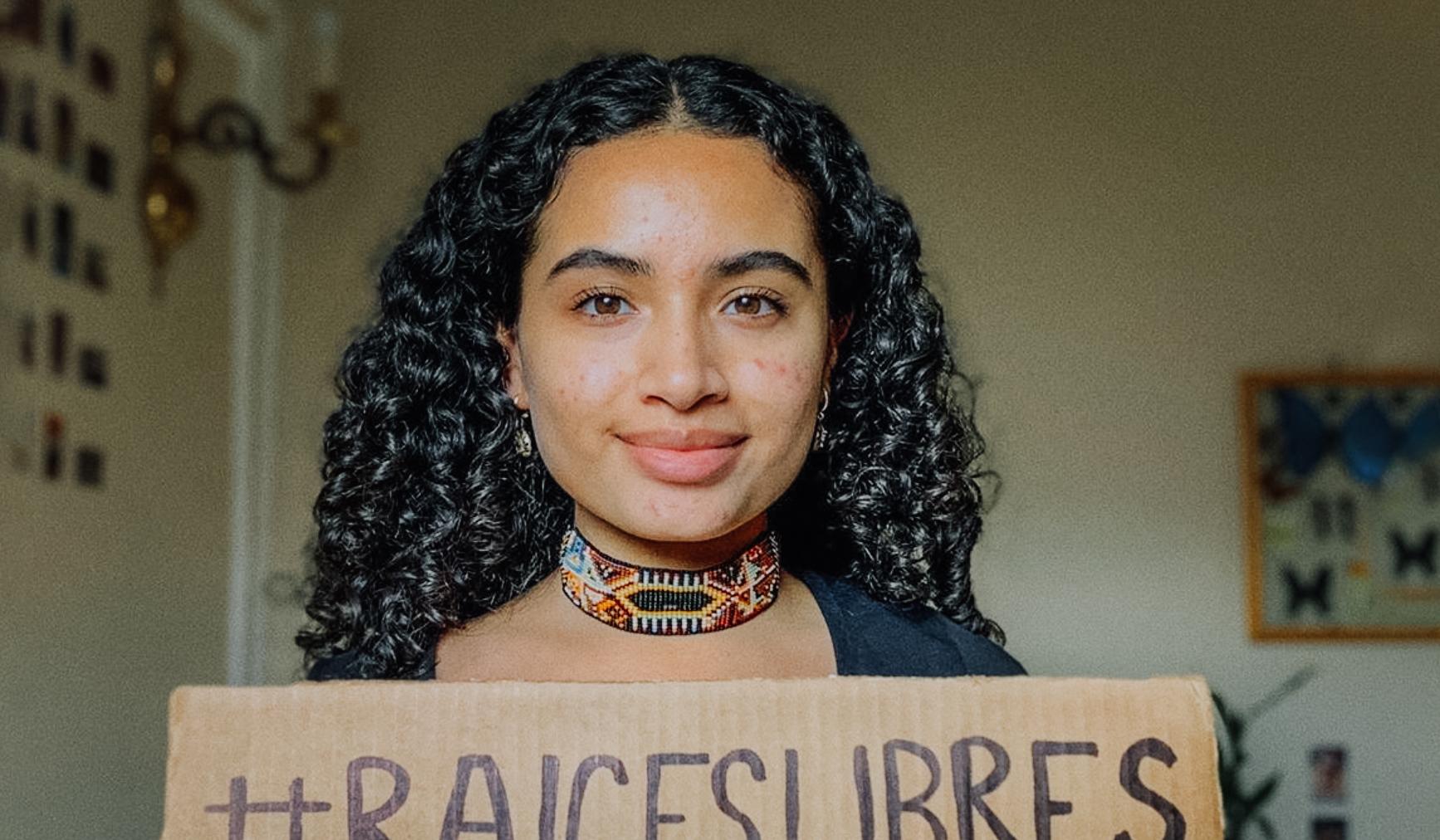
Keyra Juliana Espinoza, a Manhattan-based high school senior, first got involved with climate activism this past September, after attending the climate strike in New York City. The march inspired Keyra to follow various climate activists on Instagram, where she discovered Polluters Out, a BIPOC (Black, Indigenous and People of Color) youth-led coalition working to take the fossil fuel industry out of Indigenous lands, banks, colleges, and more. As a member of Polluters Out, Keyra has had the opportunity to meet and work with many other young activists from around the world.
According to Keyra, Polluters Out has “taken climate activism to the media” during the coronavirus pandemic. The group is organizing digital strikes that include tweet storms, livestreams, informative IGTV videos, webinars, op-eds, and encouraging youth to participate in Fridays for Future’s weekly #ClimateStrikeOnline.
“I recommend others to take advantage of all the digital activities ... to fight for our planet even if they are at home,” says Keyra.
However, the movement is about more than that to Keyra. “Personally, climate activism to me is more than just striking and repeatedly reminding people that our Earth is dying. My activism is important to me because I amplify the voices of the unheard communities and highlight the social inequalities,” she says.
Keyra’s main motivation for protecting the environment is a desire to protect her home country of Ecuador, where communities are disproportionately affected by the climate crisis. During her annual trips to Ecuador, Keyra noticed that the culture and lifestyle across the country “stresses the importance of nature.” Despite that, Ecuadorian communities “are the very ones that are the most impacted by big fossil fuel corporations and the climate crisis,” says Keyra.
Developing nations like Ecuador are responsible for very few greenhouse gas emissions — Ecuador produces less than 1 percent of the world’s emissions — but they are often the most affected by polluters.
“My motherland Ecuador doesn't really get much attention when it comes to the impact the climate crisis has on vulnerable communities and there is very little education [or] action being taken even within the country,” Keyra explains to Green Matters. “People should care about protecting the planet because they should put themselves in the shoes of the persecuted, of the silenced, of the defenders and realize that they are also human like us, we are humans that empathize when others are hurt and suffering.”
To be an effective activist, Keyra has found that intersectionality in the movement for climate justice is critical.
“As an advocate for climate change and rights for Indigenous people and people of color, I believe it is absolutely crucial that climate activism becomes an intersectional movement,” the 17-year-old says. “People, capitalism, our government, eco-friendly technology, Indigenous sovereignty, and frontline communities go hand in hand in this climate movement, and refusing to acknowledge these factors defeats the purpose of being an activist.”
This article is part of Green Matters' 2020 Earth Day campaign, #HomeSweetEarth, which aims to remind readers that the one thing we all have in common during this hectic time is our home: our shared home, planet Earth. We hope our stories this week will inspire you to connect with and honor the Earth during the pandemic — and beyond.